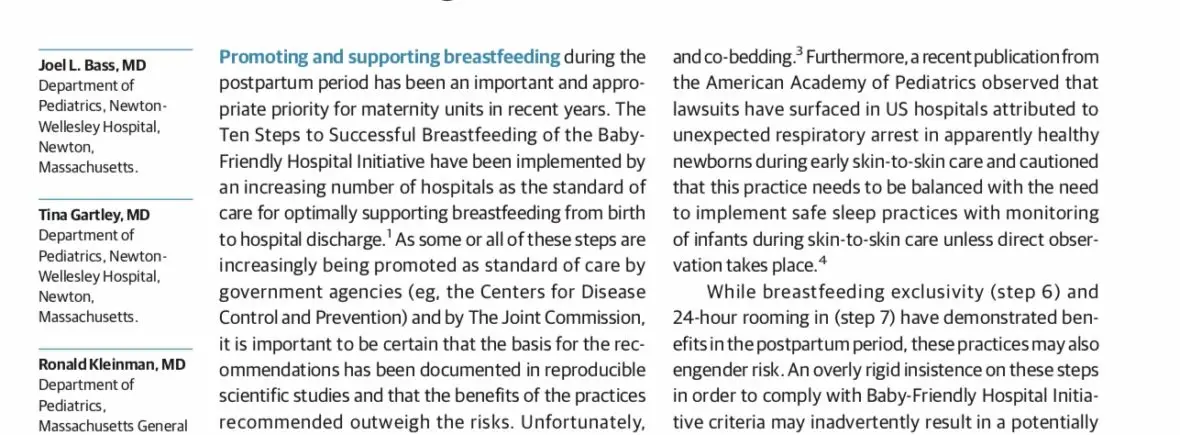By Pediatricians, Joel Bass, M.D., Tina Gartley, M.D. and Ronald Kleinman, M.D.
“While breastfeeding exclusivity (step 6) and 24-hour rooming in (step 7) have demonstrated ben- efits in the postpartum period, these practices may also engender risk. An overly rigid insistence on these steps in order to comply with Baby-Friendly Hospital Initia- tive criteria may inadvertently result in a potentially exhausted or sedated postpartum mother being per- suaded to feed her infant while she is in bed overnight, when she is not physically able to do so safely. This may result in prone positioning and co-sleeping on a soft warm surface in direct contradiction to the Safe Sleep Recommendations of the National Institutes of Health. In addition, co-sleeping also poses a risk for a newborn falling out of the mother’s bed in the hospital, which can have serious consequences.5 There is also the possibil- ity that unsafe sleep practices modeled in the hospital may continue at home.6”
“The justification for breastfeeding exclusivity is based on a 1998 World Health Organization review of the evidence for the 10 steps.7 However, that review included evidence that when supplementation was given for a medical indication, there was no adverse effect on the duration of breastfeeding. It also concluded, based on the available evidence, that it was not clear to what extent supplementation in other circumstances was a marker of breastfeeding difficulty rather than an actual cause of breastfeeding failure.”
